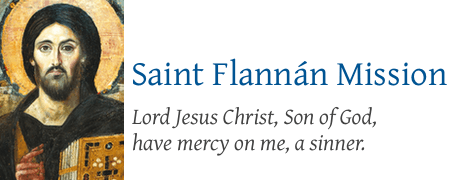In the Name of the Father and of the Son and of the Holy Spirit, one God. Amen. Dear beloved, the relationship between God and man has always been one of challenges. God has always sought after us with passion and love, while man has consistently failed God and rejected Him. Despite God showing man hard lessons in the Old Testament, He did not give up on His children, but rather, as Psalm 84:1-12 implied, He would send His greatest gift to man, His son Jesus Christ, as our salvation.
The Holy Bible paved the long and narrow path for us to show us what the saints before us also followed to their way of holiness, such as a glimpse from Isaiah 26:1-7, which showed us how important it is to stay humble and gentle in our daily walk. It is difficult for us to walk the straight and narrow, and yet it is exactly those qualities that leads to godliness.
When Saint Paul spoke in Titus 3:3-7, he reminded us that man can strive on his man towards godliness, and would fail invariably and consistently. Only when man lean on the bosom of God, can he find the grace and blessings God would generously want to give, all along. Our God our Father in Heaven, has always, sought after us.
This again was evidenced in John 5:1-9, which showed us how God can heal us simply with us saying, “yes”, and acknowledging His power, grace, and mercy. Do we allow God to heal us? Do we allow God to be with us in the deepest part of our souls?
Today is March 18, the feast day of Saint Cyril, Patriarch of Jerusalem. We commemorate Saint Cyril, great father and doctor of the church. Saint Cyril of Jerusalem, pray for us.
Saint Cyril, born 315 AD, was a defender of the Orthodox faith, and the poor. Though he was exiled 3 times by the Arian emperors Constantius and Valens, he was steadfast in his faith. He was eventually recalled to his throne, and united both the seats of Jerusalem and Holy Sion. He reposed in 386 AD.
Saint Cyril wrote in his Mystagogical Oration 4, on 1 Corinthians 11:23, about the Body and Blood of Christ.
In Matthew 9:15, Christ turned water into wine through his miraculous works. In Saint Paul’s Epistles, we can sense his assurance of the Divine Mysteries. In 1 Corinthians 11:23, Our Lord Jesus Christ declared that bread and wine was His body and blood. Likewise, in John 6:53-56, Christ declared in the spiritual context, “Then Jesus said to them: Amen, amen I say unto you: Except you eat the flesh of the Son of man, and drink his blood, you shall not have life in you. He that eateth my flesh, and drinketh my blood, hath everlasting life: and I will raise him up in the last day. For my flesh is meat indeed: and my blood is drink indeed. He that eateth my flesh, and drinketh my blood, abideth in me, and I in him.” (DRC)
Likewise, we find blessed David understanding the gift of this Divine Mystery, in Psalm 23:5, or Solomon hinting in Ecclesiastes 9:7-8.
If Christ our Redeemer said assuredly that the consecrated bread is not bread, even though it is sensible to taste, it is truly the body of Christ. Assuredly, the consecrated wine seems and tastes like wine, but is truly the Blood of Christ, shouldn’t we acknowledge that, and partake in the Eucharist with passion, with love, and with the deepest reverence?
Let us say a thanksgiving prayer:
It is truly meet to call thee blest, the Theotokos, ever blessed and most pure, and the Mother of our God. More honorable than the Cherubim, and more glorious than the Seraphim, without corruption thou gavest birth to God the Word: True Theotokos, we magnify thee.
O virgin Theotokos, rejoice; O Mary full of grace, the Lord is with thee. Blessed art thou among women, and blessed is the fruit of thy womb, for thou hast borne the Savior of our souls, Jesus Christ our Lord. Amen.
Blessings
Fr Raphael+
Readings today:
Isaiah 26:1-7
Psalm 84:1-12 (Greek LXX)
St John 5:1-9
Titus 3:3-7
